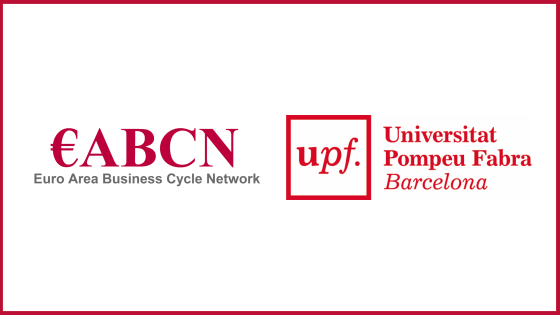

Search the site

Euro Area Business Cycle Network Training School - Analysis of Macroeconomics Data Using Local Projections taught by Òscar Jordà (Federal Reserve Bank of San Francisco, U.C. Davis and CEPR)
Universitat Pompeu Fabra
20-22 September 2023
Deadline: 6pm (UK time), Friday 14 July 2023
General description
We are pleased to announce details of the latest EABCN Training School; a three-day course entitled “Analysis of Macroeconomics Data Using Local Projections”. Òscar Jordà will teach the course. It is primarily aimed at participants in the Euro Area Business Cycle Network but applications will also be considered from doctoral students, post-doctoral researchers, and economists working in central banks and government institutions outside of the network, as well as commercial organisations (fees are applicable for non-network non-academic organisations).
Tentative course description and outline
It is often of interest to empirically evaluate how an intervention will affect an outcome over time. What makes such an exercise difficult? First, there are confounding factors that make isolating the intervention difficult. A variety of identification methods have proliferated over time to deal with this confounding. Second, economies are dynamic. It is rare to find one-off interventions. Rather, they are usually implemented in the form of treatment plans. Such plans are not set in stone, they get adjusted as the effects of the outcome (and other variables) materialize over time. This feedback between treatments, outcomes and other factors requires methods in time series analysis to sort out the contribution of each channel.
The main (but not exclusive) emphasis of the course is on local projections (LPs). LPs depart from VARs in a number of dimensions. First, LPs do not restrict the dynamics of the response from one period to the next, thus accommodating potentially complex and long-lasting outcome effects. Second, it is a single equation method, which is at the same time simpler to implement, but also simpler to extend into nonlinear settings. Third, because LPs are explicit about the goal of estimating counterfactual policy effects, one can quickly draw the connections with the applied microeconomics literature on potential outcomes, policy evaluation, and their implications.
Over the past few years, there have been numerous extensions to LPs that will be discussed. These include new results on impulse response inference; a decomposition of the impulse response into direct, indirect, and composition effects with the Kitagawa decomposition; simple linear methods to estimate time-varying impulse responses based on the economic setting; stratification of impulse responses as a function of economic conditions and other nonlinear extensions, to name a few.
More recently, it has become more common to analyze panel data in macroeconomics. Panel data structures allow for richer options, especially on identification. The course will take advantage of these new developments, particularly in the area of difference-in-differences (DiD) identification. It turns out that LP-DiD methods accommodate a wide range of recently proposed estimators of staggered, heterogenous treatment effects.
Topics
Practice sessions
The first practice session will have two parts. In the first half, examples of code discussed in the lectures will be illustrated using STATA. The second half will be an initial discussion of participants’ research or policy questions, with feedback. It is important for participants to come prepared with their own research questions to be discussed in class, possibly with data and direct application in STATA.
The second practice session will deal with examples used in class using STATA with examples of applications. The second part will be dedicated to discussion of participants’ research or policy questions if we run out of time in the first session.
The third practice session will focus more specifically on DiD applications and examples.
Morning lecture session: 09:00 – 12:00 (CEST)
Afternoon practice session: 13:30 – 15:30 (CEST)
Administrative Information:
We ask that you send a current version of your CV. PhD students must also specify in which way the school will be useful for their current research (max 300 words).
The course will take place in Barcelona, Spain. More information about logistics will be circulated closer to the date.
Participants will be invited to make their own arrangements regarding their travel, accommodation and meals. Further information about hotel options will be available to successful applicants.
Participants from non-academic institutions where the employer is not a member of the EABCN network are charged a course fee of EUR 2000.
How to Apply:
Candidates who are CEPR affiliated or already have a CEPR profile should apply by submitting their CV online:
Candidates who are not CEPR affiliated or do not have a CEPR profile should apply by submitting their CV online:
If you have any difficulty in applying please contact, Lydia Williams, CEPR Events Officer at [email protected] for assistance, with the subject line '3940 - EABCN Training School - Jorda - Barcelona, 2023'
About the Instructor:
Òscar Jordà is a Senior Policy Advisor at the Federal Reserve Bank of San Francisco and Professor of Economics at the University of California, Davis. He earned his doctorate at the University of California, San Diego. He is the founding Chair of the Spanish Business Cycle Dating Committee and currently serves as a member. In addition, he is a member of the Center for Economic Policy Research. His research focuses on time series econometrics with applications in macroeconomics, economic history and finance. He has published in international journals such as the American Economic Review, Journal of Political Economy, Review of Economic Studies, Quarterly Journal of Economics, Journal of the European Economic Association and International Economic Review. He is a co-editor of the International Journal of Central Banking, and associate editor of the Journal of International Economics, and the Journal of Applied Econometrics. He previously served in the editorial boards of the Journal of Business and Economic Statistics, the Journal of Econometric Methods, Empirical Economics, and the Journal of the Spanish Economic Association.